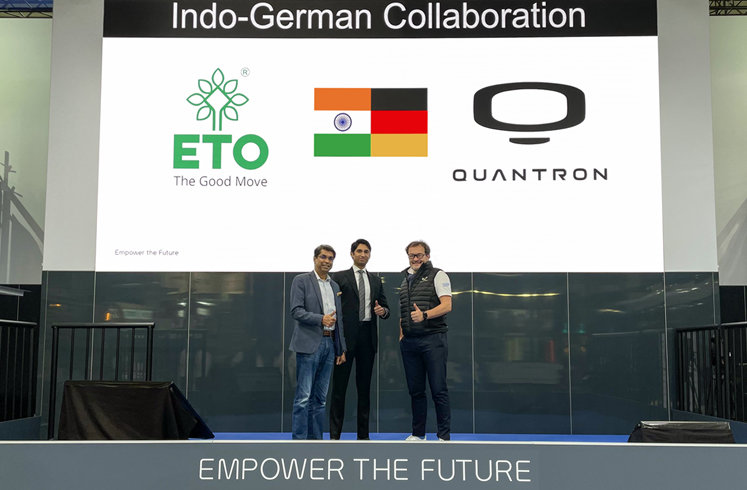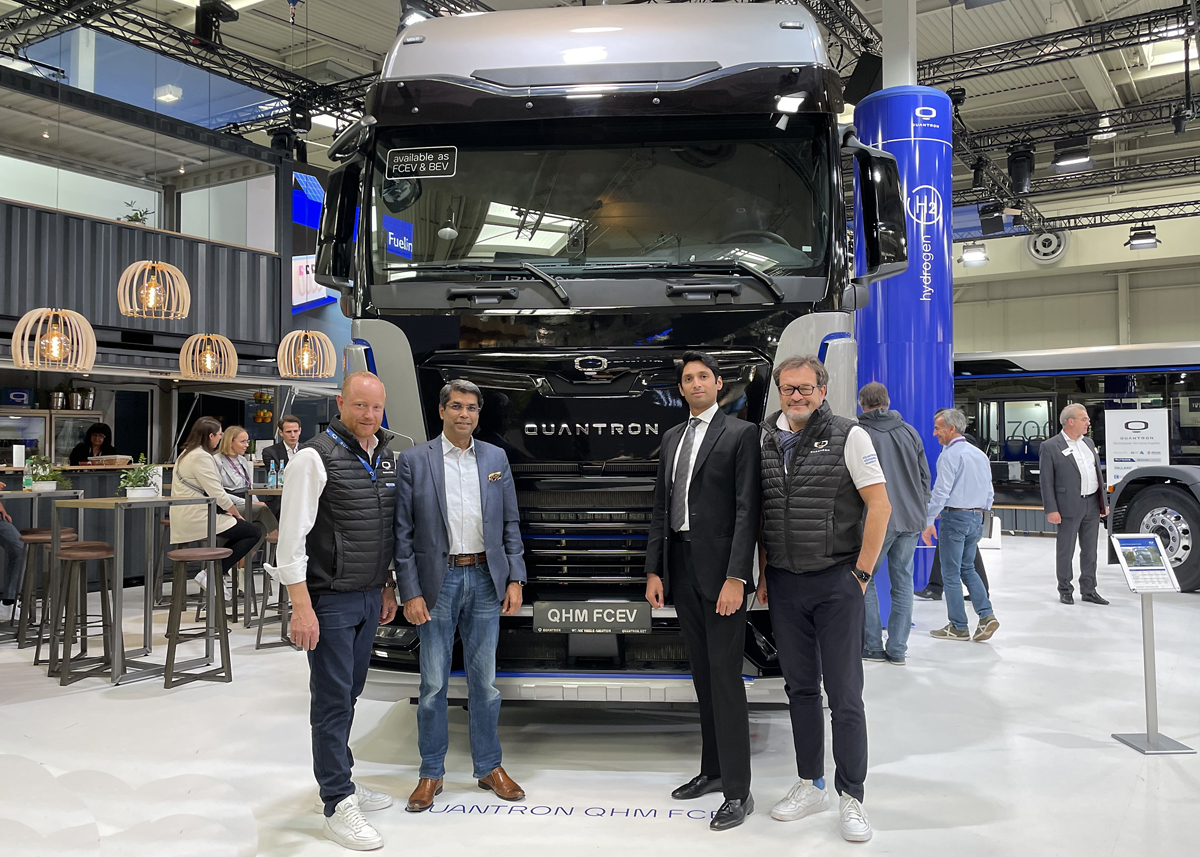
Within the collaboration, ETO will provide design and development support to QUANTRON to bring ETO three-wheeler vehicles to the European market. In return, QUANTRON will assist ETO in the development and launch of QUANTRON trucks and buses in India. The collaboration also aims to introduce H2 technology vehicles and infrastructure (such as tanks, dispensers and electrolyzers) between the countries
Quantron AG, German expert in zero-emission BEV and FCEV transportation solutions, and ETO Motors Private Limited from Hyderabad, India, are planning to start a collaboration for the Indian market which both parties confirmed during the IAA transportation 2022 in Hanover.
ETO is a comprehensive electric mobility solutions and services company that provides clean and safe public transportation for first-mile, last-mile and intra-city commuters. Under the partnership, the Indian company will provide design and development support to QUANTRON to enable ETO three-wheeler vehicles to be co-branded by the relevant authorities in Europe. In addition, ETO will assist QUANTRON in establishing assembly and production facilities for ETO vehicles in Europe.
QUANTRON will be appointed as the sole sales and service partner for Europe for all jointly developed ETO three-wheeler vehicles for the ultra-last-mile. In return, the Augsburg-based e-mobility expert will assist ETO in the development and approval of QUANTRON trucks, last mile transporters and buses by the relevant authorities in India and other countries in the Indian subcontinent, making ETO the sole distributor for all QUANTRON vehicles and technologies in the territory. QUANTRON will also provide ETO access to its existing retrofitment kits for converting internal combustion engines to electric vehicles and assist ETO in designing and developing Indian versions of those kits, with Indian pricing and Indian licensing and approvals.
The key task is for ETO and QUANTRON is to develop BEV and possibly FCEV conversion kits for applications targeting a global market – trucks, buses or even trains (for FCEV), depending on cost and feasibility.

The collaboration also aims to introduce H2 technology vehicles and infrastructure (such as tanks, dispensers and electrolyzers) through collaboration or import/export of technology between the countries. Furthermore, both parties will also work together in the development of new battery/energy solutions to be induced in vehicles/products in respective regions and ownership. They also will assist each other in a technology platform share including ecosystem connectivity, IoT, Fleet Management solutions, location based services, route management, energy, charging and location based services.
The parties plan binding agreements in Q4/2022.